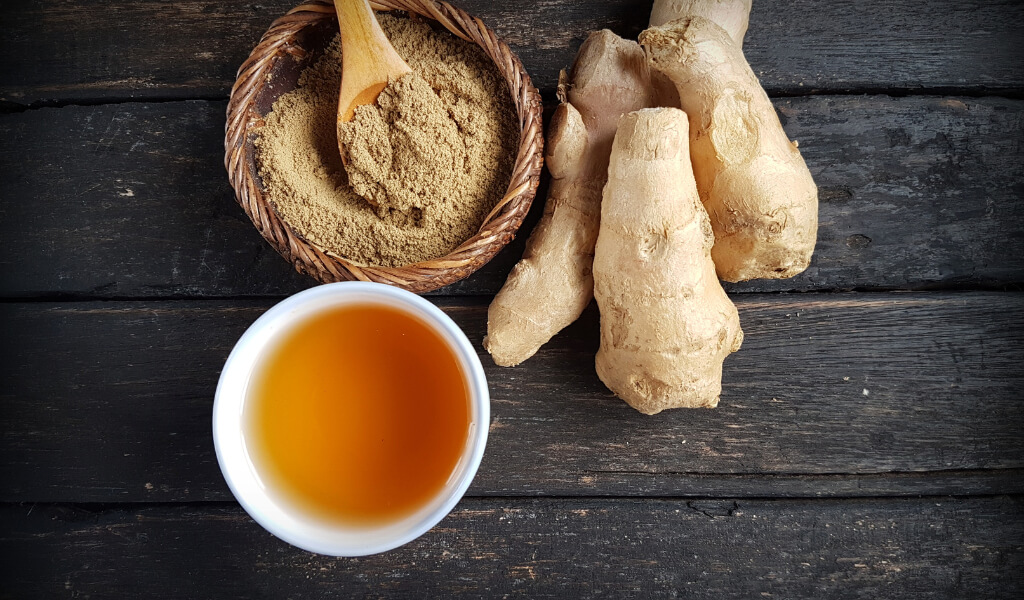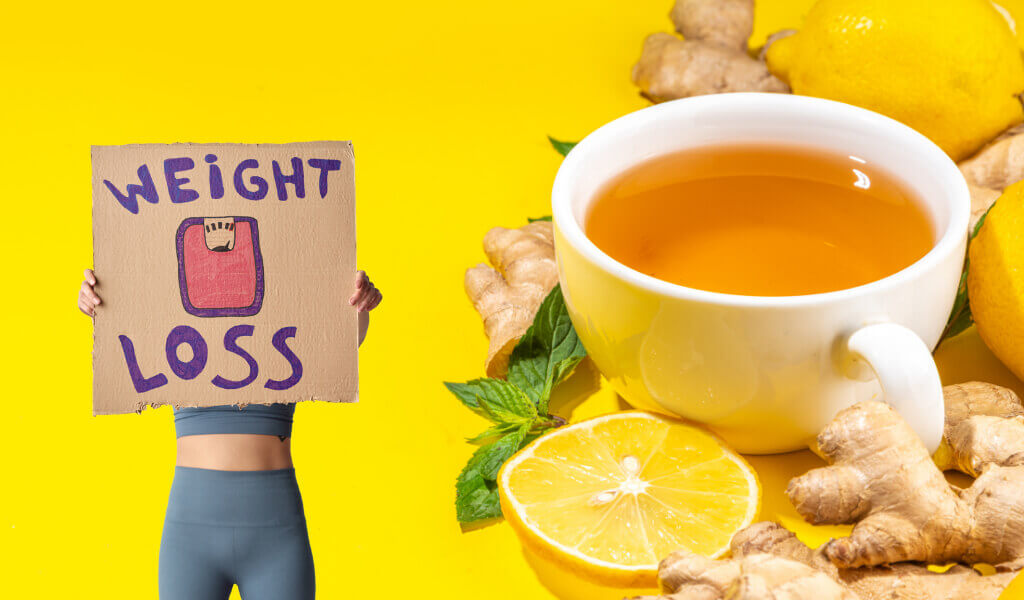Welcome, fellow tea enthusiasts! Are you curious about: when is the best time to drink Ginger tea? Look no further because I’ve got you covered!
Are you already a fan of ginger tea, or are you new to the game? Are you wondering about the potential side effects of ginger tea or the best way to prepare it for maximum effectiveness?
Whatever your familiarity with ginger tea, I’ve got the information you need. So, please grab a cup of your favorite tea, and let’s explore the wonderful world of ginger tea together!
Quotes of tea for You
“You can’t buy happiness, but you can buy tea and that’s kind of the same thing.” – Author unknown
When is the best time to drink ginger tea?
Ginger tea is a fantastic beverage to enjoy at any time of the day, but it is particularly beneficial in the morning. Drinking ginger tea within the first half an hour after waking up can help your body break it’s overnight fast, boost your metabolism, and prevent feelings of nausea.
Ginger tea is perfect for starting or ending your day! The best time to drink ginger water is in the morning or afternoon to boost your metabolism and stimulate bile secretion. Be careful; its spicy taste and stimulating effects might not be suitable for a relaxing bedtime drink.
Knowing when and how to enjoy ginger tea is critical to maximizing the health benefits of Ginger tea.
So, let’s dive deeper and see what results you can expect based on the time of day, season, and more.
What Is the Best Time of the Day to Drink Ginger Tea?
Drinking ginger tea in the morning or evening won’t change its properties, but there are a few things to remember.
Sometimes drinking Ginger leaf tea at certain times of the day can cause discomfort, so let’s look closer.
Can I Drink Ginger Tea in the Morning?
Drinking ginger tea in the morning or afternoon is the way to go!
Did you know ginger is like a superhero for digestion and metabolism? It’s a fantastic choice for a morning drink after you’ve eaten. If you’ve had a huge breakfast or lunch, ginger can kick your stomach to keep going strong. So go ahead and give it a try!
When you think about what to drink in the morning, coffee might come first. But tea is a fantastic alternative. The proper tea should energize you without adverse side effects like caffeine in ginger tea crash.
Ginger tea for digestion is a perfect choice – it wakes you up and gives you a boost without any downsides.
Drinking ginger tea before bed?
Ginger is generally considered safe for daily consumption, but limiting your intake to 3 to 4 grams per day is recommended. If you’re pregnant, it’s best to stick to 1 gram daily. Consuming more than 6 grams of ginger daily can lead to digestive problems like reflux, heartburn, and diarrhea. –
Source

Drinking ginger tea before bed can help soothe your stomach and promote better digestion, leading to a more restful night’s sleep. Ginger tea’s warm and comforting properties can help calm your mind and body, making it the perfect nightcap.
Here are some excellent benefits you could experience:
- Soothing indigestion: Lemon ginger tea can help calm an upset stomach and promote better digestion.
- Combatting nausea: A cup of lemon ginger tea might do the trick if you’re nauseous.
- Clearing nasal congestion: Lemon ginger tea can help reduce nasal congestion, making breathing easier.
- Relieving constipation: Ginger is known to have natural laxative properties, making lemon ginger tea an excellent choice for those struggling with constipation.
- Anti-inflammatory properties: Lemon ginger tea is naturally anti-inflammatory, which can help reduce inflammation in the body.
- Staying hydrated: Drinking lemon ginger tea before bed can help you stay hydrated, which is essential for overall health.
So, why not try lemon ginger tea before bed and see if you notice a difference?”
Best time to drink ginger tea with lemon for digestion?
I’ve found that ginger is amazing for improving digestion and combating nausea, cramps, and other digestive issues. If you’re drinking ginger tea for these reasons, the best time to enjoy a cup is right after a meal.
I used fresh Ginger tea for weight loss to help with morning sickness when I was pregnant. And when I wasn’t near my tea, I always kept some candied ginger on hand for those moments when I felt nauseous. Ginger ale or ginger water are also great options for morning sickness.
Treat your tummy right with a cup of ginger tea after a meal! It’ll help your belly break down food, speed up digestion, and avoid annoying stomach pains or cramps. Give it a try and see if it helps!
Best time to drink ginger tea for acid reflux?
Ginger is a natural solution for those who suffer from acid reflux or heartburn. Many antacids contain ginger to neutralize stomach acid.
Drinking ginger tea about 30 minutes before a meal is recommended for the best results. This helps to prevent the stomach acid from reaching the esophagus and causing discomfort.
Suppose you’re using ginger tea to alleviate acid reflux or heartburn. In that case, experts suggest drinking it up to twice daily. However, it’s important to remember that ginger tea should only be used occasionally and not as a long-term solution for chronic heartburn or acid reflux.
When to consume ginger tea for weight loss?
Sure! Drinking ginger tea for weight loss can significantly improve your healthy diet and lifestyle. Kickstart your day with a warm cup of ginger tea before breakfast! It can boost your metabolism and amp up your energy levels, helping you tackle whatever comes your way with enthusiasm.
Another good time to drink ginger tea is in the afternoon, around 3-4 PM, as it can help to reduce cravings and prevent overeating during dinner.
It’s crucial to understand that while ginger tea might aid in weight reduction, it is not a miracle cure. Ginger tea can add some flavor to your weight reduction journey when combined with a nutritious diet and an active lifestyle, but it won’t make you skinny.
To summarize, the best times to drink ginger tea for weight loss are in the morning before breakfast and in the afternoon around 3-4 PM. Remember, it’s just one part of a more effective weight loss plan that should include a healthy diet and regular exercise.
Can You Drink Too Much Ginger After A Meal?
I’ve learned that drinking ginger tea while eating or right after a meal can help prevent digestive issues. Even a tiny amount of food can help prevent abdominal pain and discomfort caused by ginger tea.
Can I Drink Ginger Tea on an Empty Stomach?
Ginger is great for boosting digestion and promoting bile secretion.
But because of these effects, I wouldn’t recommend drinking ginger tea on an empty stomach. If I drink it before eating, I have something soon after to avoid stomach irritation or upset.
Starting the day with a stomach ache is not ideal, trust me.
Are there occasions where it’s not advisable to consume ginger tea?
While ginger tea is excellent for your health, there are certain instances when it’s best to avoid it.
- If your skin is dehydrated
- If eating ginger causes your face or tongue to become red or hot
- If you have a high fever of 39 degrees or above
- If your pulse is 90 beats per minute or higher
- If you’re experiencing symptoms of dehydration.
What Flavors Go Well with Ginger Tea?
Ginger tea is a fantastic drink to enjoy in the morning or evening, all on its own. But you’re looking to switch things up and add some variety. In that case, you can add a few ingredients to your ginger teapot to change the flavor profile and add some extra nutritional benefits. Here are some options:
- Cardamom: This plant is very similar to ginger; the spice is made from its seed pods. Like ginger, cardamom has a spicy flavor and is suitable for heart health.
- Mint: Mint comes in a variety of tastes and variations, including spearmint and peppermint, and is a common green tea herb. Since mint is also known to help with stomach troubles, adding mint to your ginger tea might enhance its digestive properties.
- Cinnamon: Cinnamon is a popular addition to herbal teas because of its spicy flavor, commonly used in beverages and desserts. This delicious spice is packed with antioxidants and has anti-inflammatory properties.
- Turmeric: Another flowering plant in the ginger family, turmeric is a bright yellow spice dubbed a superfood by nutritionists. It can help with various health problems, such as high cholesterol, menstrual cramps, Alzheimer’s, and arthritis.
If you’re looking for a change from your usual ginger tea, these additions can provide a tasty twist while adding new nutrients to your drink.
Which one is preferable, ginger tea or green tea?
It’s a toss-up!
Both ginger and green tea are delicious, but there are some differences to consider when deciding which is better.
It has been demonstrated that ginger tea can relieve nausea, indigestion, and even arthritis. It has also been demonstrated to lower the risk of heart disease and is an anti-inflammatory.
Additionally demonstrated to have anti-inflammatory qualities, green tea can help lower cholesterol and blood pressure. Additionally, it includes substances that might offer some degree of cancer protection.
Vinegar ginger is also recommended for those who don’t like ginger black tea.
If you’re not a fan of ginger black tea, don’t worry! There’s another option for you – vinegar ginger. Even though ginger tea is known for its health benefits, some people need help to get past the taste. That’s where vinegar ginger comes in. It’s a simple food made by pickling ginger in vinegar and can be easily incorporated into your meals.
Vinegar ginger is versatile and can be used as a topping, seasoning for meat, ingredient for cooked rice, or general all-purpose seasoning. And the best part? You can eat it as is, making it a hassle-free option.
Not only is it easy to make, but it’s also good for your health. Vinegar ginger has citric and acetic acids that can help you fight fatigue, burn fat, and enhance your immune system.
You’ll get the combined health benefits of vinegar and ginger by eating vinegar ginger.
And if you have any leftovers, don’t worry! You can store vinegar ginger in an airtight container in the refrigerator for up to two weeks. So if you’re looking for a tasty and healthy alternative to ginger black tea, try vinegar ginger!
When is the best time to drink ginger tea and what is the recommended dosage?
Since ginger helps to warm my body, I adore utilizing it as a natural remedy. Did you know that in addition to lowering nausea and promoting immunity and cold prevention, ginger also fights depression?
To maintain a healthy body, I concentrate on eating a balanced diet and working out frequently. I include ginger in my regimen by drinking 150 cc of ginger tea 3 to 6 times each day.
If I’m feeling peckish, I’ll have ginger tea with some honey to help curb my hunger. But if I don’t feel well, I don’t force myself to drink it. Instead, I enjoy ginger tea wisely and deliciously to build a healthy body.
Thanks for reading! Share the article to support Spiriteadrinks.com
FAQs
How many cups of ginger tea a day?
To effectively relieve nausea, it is recommended to consume two to four cups of ginger tea daily, as each cup contains approximately 250 milligrams of ginger. To avoid these problems, it’s a good idea to stick to 4 cups of pre-packaged ginger tea daily.
Can I drink 2 cups of ginger tea every day?
Yes, consuming two cups of ginger tea daily is perfectly healthy. Ginger, a well-known herbal remedy, has many benefits, including digestive health, anti-inflammatory properties, and boosting immunity.
Is it okay to drink ginger 3 times a day?
Drinking ginger tea three times daily can benefit your health, especially for digestion and nausea relief. However, moderation is key, as excessive intake can lead to adverse effects like heartburn or stomach discomfort.
Is it okay to take ginger on an empty stomach?
Consuming ginger on an empty stomach may boost digestion and kickstart your daily metabolism. However, some people might experience stomach discomfort. It’s advisable to start with a small amount and see how your body responds.
When not to take ginger?
While ginger has many health benefits, it’s only suitable for some. It’s best to avoid ginger if you have a bleeding disorder, are about to undergo surgery, or are pregnant. Always consult a healthcare professional before making significant changes to your diet.
I’m Shanna, creator of Spiritea Drinks. I’m all about teaching people to grow their own food, tea, cook what they harvest, and eat with the seasons.





